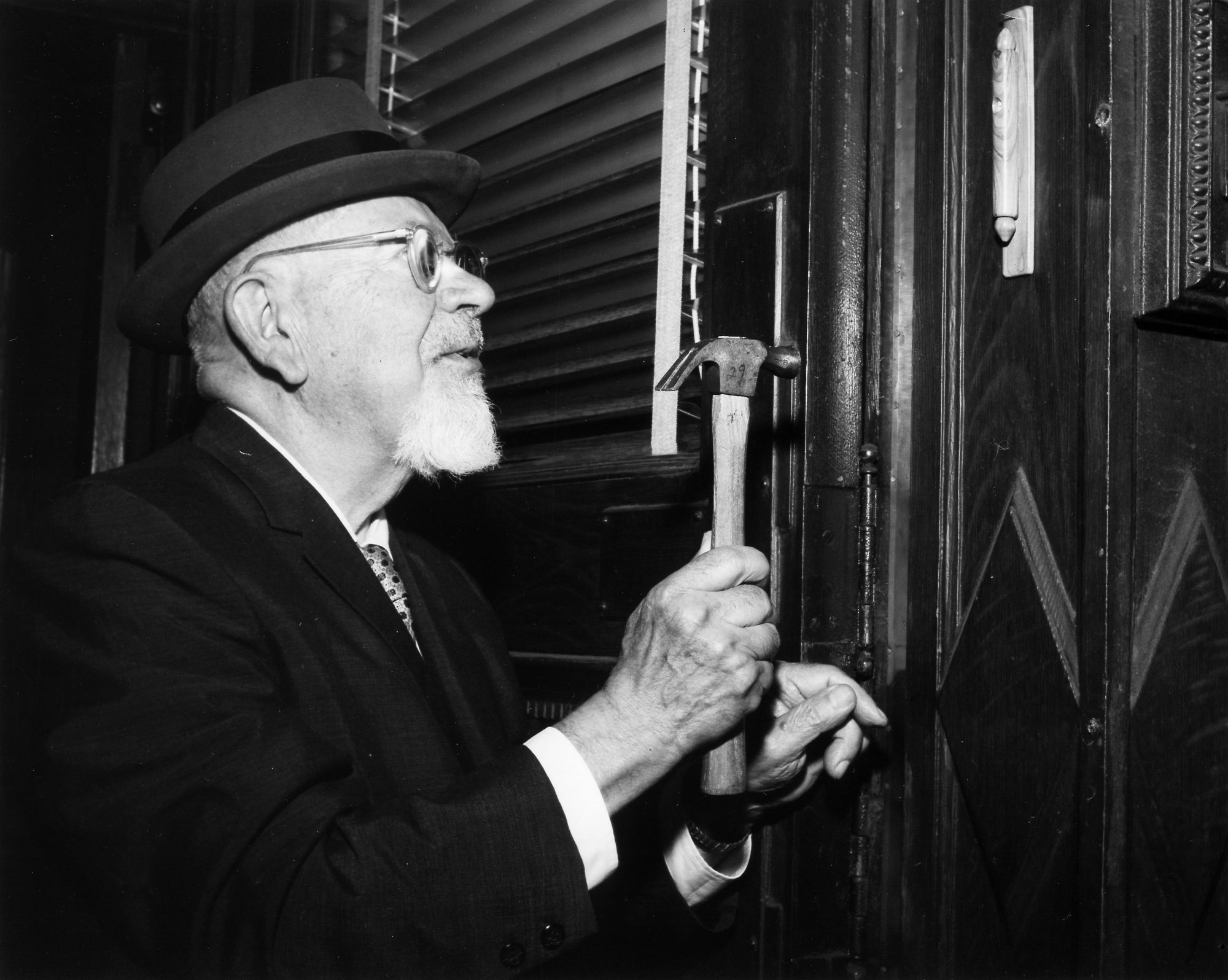From the diaries of Rabbi Mordecai M. Kaplan, a reflection on how to define the term “Jew.”
From the diary of Rabbi Mordecai M. Kaplan (Aug. 10, 1950), edited by Professor Mel Scult
I am having a most exciting time here. Little did I imagine that I would be enjoying my stay here as much as I do. When Bardin invited me to be his guest, it was with the understanding that I was to sit down once in a while under a tree, and a number of the young people who were sufficiently interested in putting questions to me would gather around me and I would try to answer their questions. Instead, it has turned out that I meet a group of about 10—supposedly the best informed students—for an hour every morning. The rest of the student body is divided into two groups (there are 130 in all), each of which I meet on alternate mornings.
When I met the small group, after having read the questions which they put down on the tests (containing 58 questions of information) and which they would like to have answered, I realized that it would be futile to attempt to answer those questions as formulated by them because they seemed to lack the basic understanding of what the term “Jew” denoted. I therefore started out by having them realize that “Jew” is a common noun that does not denote function, as does salesman or barber, but one that denotes belonging or status. As such, it can be understood only in the context of a social group that confers the status upon the individuals who belong to it. That led to the question as to the kind of group the Jews constituted—temporary or permanent—and the differences between these two groups in that the former is a purposive and the latter a natural group.
The next question was what made the Jews into a group? The answer “common interests” had to be itemized in terms of specific interests. These were found to be: security, welfare, self-perpetuation, law and order, culture, morale and social responsibility. To further these interests, special agencies, institutions, regulations, etc., had to be devised. The complexity of the interests and the agencies to promote them constitute a civilization. Hence, Jews are a people united by a civilization, and as such, confer status upon every individual Jew.
Status implies both privilege and responsibility. Privilege is based upon heritage that comes from the past. That heritage consists of advantage in terms of power, or any or all of the values that go to make up a civilization. Responsibility consists in helping one another to prepare the future so as to enable the children to enjoy the privileges that civilization has made possible and that are common to all its adherents.







